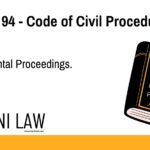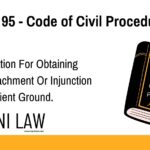Introduction
The Motor Vehicles Act, 1988 governs all aspects of road transport in India. It sets the legal framework for issuing driving license, registering vehicles, enforcing traffic rules, and ensuring road safety. The Act outlines who can apply for a driving licence, the procedure involved, and the conditions to be met. Understanding these rules helps drivers stay compliant and avoid penalties.
Who Can Apply for a Driving Licence in India
Anyone not disqualified from holding a driving licence can apply through a State licensing authority. Applicants may apply in the State where they live, work, or have received driving training under Section 12.
What Is Application Process and Eligibility
To apply, submit a form with the required fee and documents as prescribed by the Central Government to any authority specializing in drive testing. Applicants must pass a driving test. However, the test is waived if:
The applicant held a similar licence that expired less than five years ago.
- The applicant has a valid licence under Section 18.
- The applicant holds a valid foreign licence and meets Section 8(3) conditions.
- The applicant must be medically fit to drive. The authority may ask for a medical certificate. For adapted vehicles, licences are issued if the applicant is fit to drive them.
- For transport vehicles, applicants must provide a driving certificate from a recognized school under Section 12.
If the applicant fails the test, they can retake it after seven days. After three failed attempts, they must wait 60 days and complete a remedial course from a certified training school.
Driving tests must be taken in the same type of vehicle applied for. A person who passes a geared motorcycle test is also deemed fit to drive one without gears.
If the applicant qualifies, the authority must issue the licence unless the person is currently disqualified. In special cases, even a non-local authority may issue the licence if justified. A new licence won’t be issued if the applicant can get a duplicate of their previous one.
What Are The Grounds for Rejection and Licence Format
The authority can reject an application if the person is:
- A habitual criminal or drunkard.
- Addicted to drugs or psychotropic substances.
- Previously had a revoked licence.
The authority must give reasons in writing and allow the applicant to be heard. If rejected, the applicant can appeal within 30 days.
All learner and driving licences must follow the format set by the Central Government. The licence must specify the type of vehicles allowed, such as:
- Motorcycles with or without gear
- Adapted vehicles
- Light motor vehicles
- Transport vehicles
- Road rollers
- Any specified type of motor vehicle
- Licences for e-rickshaws or e-carts will follow specific rules and conditions.
Conclusion
The Indian driving licence process ensures that only qualified and responsible individuals receive driving rights. From application to issuance, every step includes checks to maintain road safety. Following the prescribed rules can help applicants secure their licence without delays.








